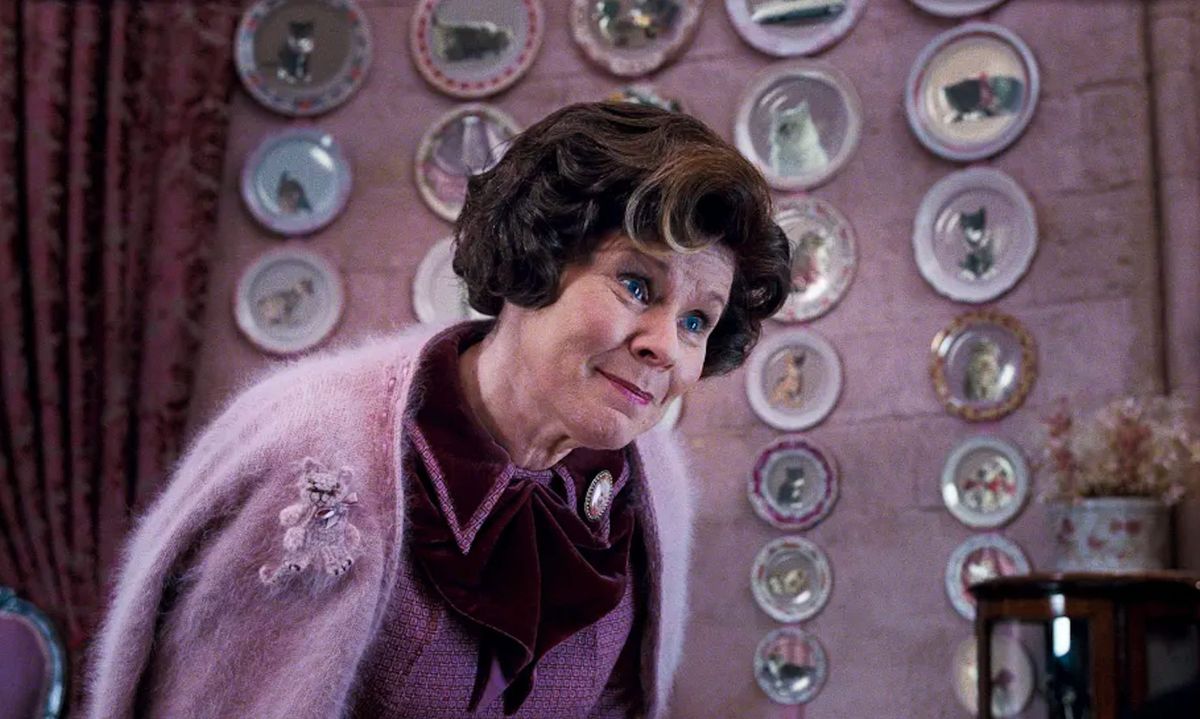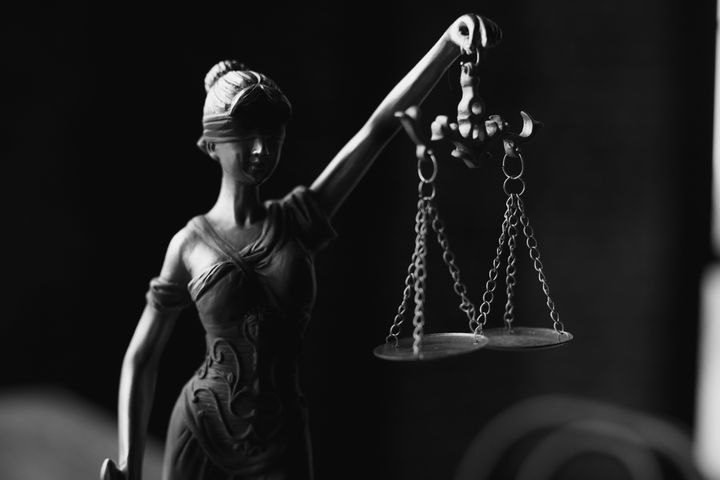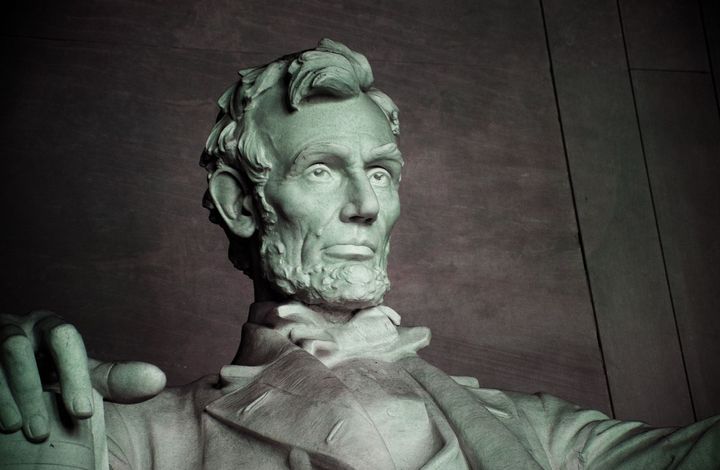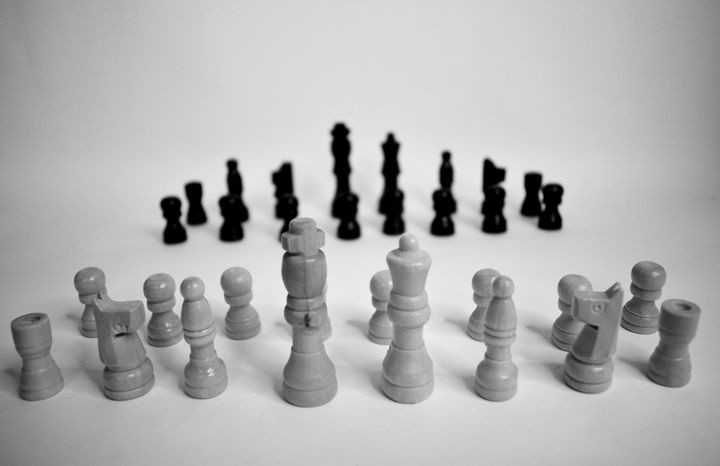How To Save Our Culture From The Sensitivity Readers
People are amazing. They’re capable of incredible creativity. They can build entire imaginary worlds full of epic stories. Their work gives us a place to escape, a place to hope, a place to experience everything humanity has to offer. But then a corporation comes along

People are amazing. They’re capable of incredible creativity. They can build entire imaginary worlds full of epic stories. Their work gives us a place to escape, a place to hope, a place to experience everything humanity has to offer. Thanks to the imagination of countless authors, artists, and creators, we have a canon filled with incredible content. But then a corporation comes along, buys a piece of it, hires sensitivity readers and terrible writers, and destroys it. From Star Wars to James Bond, video games like The Witcher to classic novels like Charlie and The Chocolate Factory, it’s the same story on repeat.
In 2023, it’s common knowledge that popular media is wildly biased, but the never ending strings of political remakes, rewrites, and corporate censorship is something new entirely. The assault on our shared culture is subtle, and uses the mechanisms of capitalism — not the state — to accomplish its goal: an Orwellian corruption of meaning. Like a zombie it hijacks the body of an artwork, kills it, then uses it for its own ends.
The best example is the emergence of a new profession: the sensitivity reader. In the past decade alone:
- Six Dr Seuss Books removed from publication
- At least 4 of Roald Dahl’s classic novels were rewritten by sensitivity readers
- The James Bond Novels were all rewritten, with entire characters removed
- Several Agatha Christie novels were rewritten
- Books in the Goosebumps series were rewritten without the author's knowledge
It’s not just classic novels that are being ‘re-interpreted’, but practically all forms of popular media. Popular movie franchises and film adaptations of books have also been heavily targeted. The most egregious examples get mentioned often, but the list of art that's been censored, willfully misrepresented (e.g.,“Baby It’s Cold Outside”), or never even made in the first place is far longer.
The cause is simple: the total monopoly that progressives have on popular American culture. In theory, progressives are on the side of freedom, open inquiry and tolerance, but in practice progressives crave censorship and power just as much as anyone else. Progressive censorship is scary at the moment because unlike right wing censorship, it's currently working. Right wing censorship is often clumsy, obvious, and usually done through constitutionally incompetent local and state governments. When the gigantic left wing media-activist-lawyer complex takes notice, right wing censorship is utterly crushed. In the US the First Amendment is a titan, and it easily swats away the attempts at direct government censorship that conservatives are so fond of.
The current flavor of censorship is elegant, subtle, and sophisticated. Perhaps it’s because progressives actually understand how the country works, or perhaps it’s because they’re in complete control of America's cultural institutions. It doesn't really matter because at the moment, it's working.
The strategy consist of four genius parts. You may be familiar with some or all of them.
- Create ravenous mobs of politically motivated activists on and off the internet. These activists can exert external pressure on corporations, foundations, and publishers, threatening their brands and their cash flow.
- Sympathetic journalists (which is almost all of them) will then flood the news with coverage of the activists. Now this small group seems like a mass movement. This will silence dissenters because they'll believe they're alone. It should also create a lovely social contagion, and hopefully a moral panic, forcing those on the fence to support the cause. If the corporations aren’t already cowed, this will break them.
- Play the long game. You've been infiltrating the HR departments inside corporate America for decades now. Gradually you've shaped entire company cultures with your hiring choices. Now you can strike. It doesn’t matter what the janitors and the CEOs think, you own the white collar employees, HR, marketing, and middle management. If a few holdouts try to defy external pressure, so much the better. They've showed their hand and can now be purged. Congratulations: You’ve captured the company and it’s brand credibility.
- Now it's time for the final, glorious phase. You control the company, so you control it’s property. There's strong external pressure from activists, and the press is working overtime to provide intellectual cover for censorship. You can gut the stories, novels and movies you own but didn't create, and stuff them full of your own ideology. All while pretending it's just a business decision made because of capitalism!
Along every step of the way you have the organs of the left wing cultural hegemony doing the heavy lifting. The film critics and media try to convince the plebs that this piece of shit movie is actually brilliant. If you say otherwise you’re a racist, homophobic, trans denying misogynist. Despite unnecessarily alienating potential customers, companies look like they are responding to the market because of manufactured internal and external pressure. The tsunami of propaganda from every "respectable" media outlet should gaslight any sane person still standing.
This strategy has been effectively employed all over the institutions of America — just look at the Orwell foundation or the ACLU — so why wouldn’t it work for movies and novels from long dead authors?
Should we really care if a company modifies the wording in an old children's book? After all, it is their property. The problem is that the company is not doing it for profit. From a business perspective it would make far more sense to publish multiple versions including the original, but this isn't what happens. In the US, there is precious little difference between progressive bureaucrats in government, progressive nonprofits, progressive universities, and an increasingly progressive corporate America. They all move through the same revolving doors – they are functionally one giant organization with tentacles in all of America's major institutions. It's hard to argue it's good business when you are harming your company financially at the "insistence" of your friends in academia, media, and government.
It's bad enough that our leaders don't value free speech, but the effects of this kind of censorship on the common culture are disastrous. The First Amendment rightly discusses only censorship from the state, but its pillars are firmly rooted in culture. If a culture doesn’t value free speech, those pillars will crumble. And each day the First Amendment is violated ‘in spirit’ brings us closer to the day it’s violated in law.
The progressive vise grip on culture has many forms and changes with time. It currently looks like a strange combination of bad writers looking for employment, activist employees, cowardly executives, and outrage culture. But this otherwise harmless army of the mediocre has metastasized into a monster thanks to one word: copyright.
Copyright does have a useful purpose. If you come up with something new, you get a brief monopoly over that creation to capture its value before others can. For example, if there was no copyright, and you wrote a book series that generated enough profit such that you were able to make a modest living, Disney could steal your concept, make a movie franchise out of it, and never pay you a cent. Copyright essentially outlaws this brand of parasitism.
Copyright has been around since the country’s founding. At first, its initial term was 14 years, with an option to renew for another 14 years. Over many decades, the initial terms and renewal options were tweaked, but the maximum copyright term never exceeded 56 years. These laws only applied to specific works, and you had to seek out approval for each work you wanted to copyright. This is an eminently reasonable system to help you exploit your own creations, and was the norm for almost two centuries.
But in 1976, the evil mouse came. This was the year the US enacted the Copyright Act, which aimed to bring American copyright law in line with international copyright treaties. Coincidentally, Disney's copyright on Mickey Mouse was set to expire in the early 80s. Sensing an opportunity, Disney and other media companies lobbied in support of adding a retroactive copyright term of 75 years after publication for corporate-owned works. This gave Mickey Mouse protection until 2003. And in 1998, as Mickey Mouse was again approaching the public domain, Disney — along with other media companies — lobbied hard for the 1998 Sonny Bono Copyright Term Extension Act, also known as The Mickey Mouse Protection Act. This legislation passed, and now copyright for individuals lasts the life of the author plus 70 years, and for corporate works, a whopping 95 years after publication.
“Some of these corporations have intellectual assets, and they see that the copyrights are about to expire,” intellectual property lawyer and copyright reform specialist Stephan Kinsella told me over Zoom. In addition to being an anarcho-capitalist, Kinsella is a strong opponent of intellectual property. “Corporations get afraid of that and they lobby Congress, and Congress pretends like it’s pro-America, pro-innovation, pro-property, and under that guise, they just extend it.”
If you’re dead, why do you need a 70-year monopoly on your work? The answer: you don’t, but someone who wants to make money off your legacy sure does. There is disagreement among economists about whether we should even have copyright, but most agree that the harm of copyright, a government created monopoly, is only justified by its benefits to the public when it’s limited in time and scope. Unfortunately, our centuries-long copyright terms applied automatically to anything created by anyone have little public benefit and massive costs. Modern copyright law is intended to enable more profit, not censorship — but it has proven equally effective at both.
“Copyright had its roots in censorship,” Stephan said. “There’s always been the attempt by the ruling elites, usually the church, the crown, the state, the kings, to control thought. They could do this easily in the beginning, before the printing press, because it was hard to produce books. So you have these legions of scribes in the churches just hand-copying everything. So of course that gave the church — and the state — the power to control what people believed, because they controlled what could be printed.”
Copyright reform would help break the grip that progressive ideology maintains on art and culture. “Most reforms are infeasible because the lobbies will fight them all, but Tom Bell's proposal for returning to the founders’ copyright is not a bad idea,” Stephan told me. To fix copyright, he suggests to “reduce the scope, reduce the term, reduce automatic enrollment, and reduce statutory damages. Also, expand and clarify the fair use exceptions, because right now they’re very vague.”
Returning to the maximum copyright duration of 28 years makes sense. With 28-year-long copyright, you have plenty of time to get rich off your work. Even if you wrote your magnum opus at 25 years old, you would have ample time to make money. Stephan pointed out that the benefits of copyright to the creator are mostly in the beginning. “The bulk of profits tend to be made in the early years. In other words, the value of a 20-year monopoly might be worth 90% of a 40-year monopoly.”
With copyright reform, we can fight censorship and propaganda. And we can counter with our secret weapon: the fans. If you’re long dead, you can trust your biggest fans more than your own flesh and blood — and large corporations subject to the whimsical sensitivities of the managerial class — to defend your legacy. Copyright is a weapon used to fight your fans. Eliminate it and your fans will do the heavy lifting.
Take The Lord of The Rings. A beloved work, the foundation of an entire genre, and arguably, a cornerstone of Western literature. Amazon, a mega-corporation and chronic panderer to wokeness now owns part of that legacy. Their creation, The Rings of Power, suffered from basically every type of depravity that ruins great stories. It had incompetent writers, destruction and omission of the original story, political casting choices, and hatred for its fan base.
How could copyright reform have prevented this dumpster fire?
Without copyright, we would expect to see many film adaptations of popular franchises. With Lord of the Rings, Amazon wouldn’t be one of the select few that can adapt the franchise, so they probably would not have been the first since Peter Jackson to do that, and they’d have to compete much harder for views. In general, we would see big studios compete to produce multiple high-budget versions of popular franchises, while the fans and smaller studios could make their own versions as well. And since AI will continue to decrease costs associated with independent media, the future might see thousands of independent works of increasingly better quality for even the most niche franchises. But copyright means your favorite world is owned by Amazon and an elite group of cash-rich corporate entities alone. So if you want to see it on the big screen, you have to deal with the devil.
Once copyright is gone, so is the coercive power of the state-sponsored monopolies it creates. Censoring the art we love only works when the captured institution or company can restrict access to the original work. Remove copyright and you remove that censorship.
With copyright reform, everybody wins. First and foremost, the fans — those who are most invested in a story — will have a better ability to ‘control’ how stories are adapted, simply because they will be able to choose what versions they spend their money on. Fan civil wars are just as notorious as hostile corporate takeovers, and both are avoided with copyright reform. Echo chambers are often framed as a universally bad thing, but when it comes to fiction, this just isn’t true. More choice means peaceful coexistence. The purists, the remakers, and everyone in between can have the version of the story they want.
Successful creators, living and deceased, win. I can only speak for myself, but I want people to care about what I say, and I would be overjoyed if my work remained relevant beyond my lifetime. As a creator, your fans — the people who love what you do — are the best shepherds of your legacy. To a publisher or media company, you're a meal ticket at best and a liability at worst. Your loyal fans are happy to pay for your work, and your publisher is happy to skim off most of that value. But it doesn’t need to be this way. Your fans care about you for you. Let them protect your legacy and what you believe in after you’re gone.
For new creators, copyright reform would be a dream come true. I’m confident that the day after copyright reform is the beginning of a new American renaissance. There are millions of talented artists, amazing stories, and epic worlds waiting to make it into popular culture. If companies have the option to rely on their monopolistic IPs, crank out remakes, and suck every drop of value out of a franchise, they will. Because why take the risk of funding something new? Why build a new world when you can keep on milking Star Wars?
Finally, the consumer benefits. There would be orders of magnitude more choice. Dozens or hundreds of versions of every popular work might exist. Many more stories currently languishing under copyright would see the light of day. Instead of writers who never cared about the story, or actively hated the fan base like in The Witcher, the most dedicated fans would fund and lead projects. Imagine if instead of watching Henry Cavill walk away from The Witcher, the studio let him produce it. With a super fan at the helm, we should expect magical things to happen. Even if he failed, without copyright, there would be many more fans at other studios to try again with their own versions.
Copyright reform comfortably stands on its own merits, and has always been a worthy cause. Today, however, it means so much more. Orwellian censorship and cultural destruction run rampant. The past is being edited away. Laws protecting free speech are under attack in the US, and dead in most other Western countries. While I doubt copyright reform alone can protect free speech, it will remove a powerful weapon from the hands of the enemy. At the very least, we could finally stop arguing about children's books.
-Alden
Conversations have been edited for length and clarity.



Comments ()